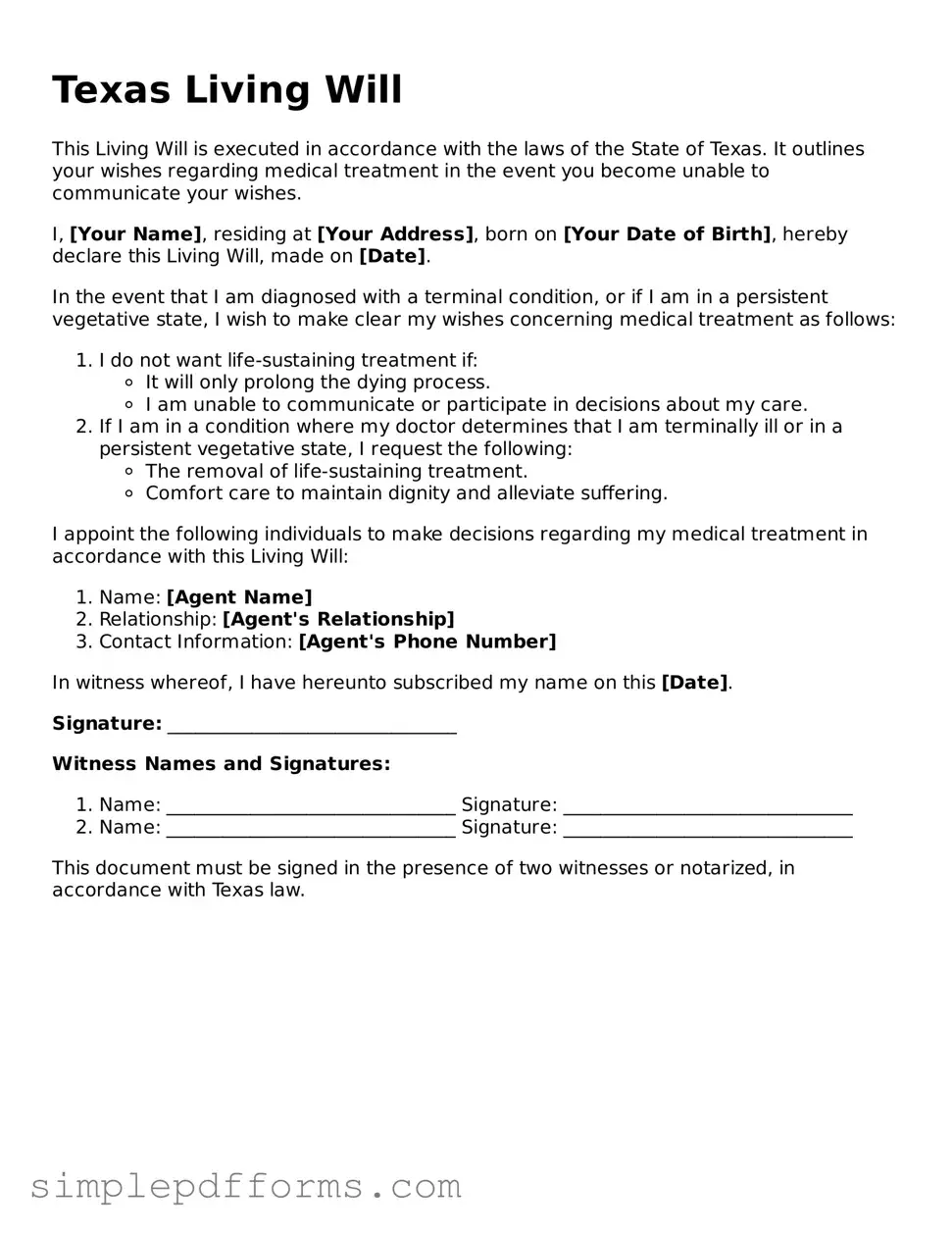Attorney-Verified Living Will Document for Texas State
A Texas Living Will is a legal document that allows individuals to express their wishes regarding medical treatment in the event they become unable to communicate their preferences. This form plays a crucial role in ensuring that a person's healthcare decisions are honored, particularly concerning life-sustaining treatments. Understanding how to complete and use this document can provide peace of mind for both individuals and their loved ones.
Open Living Will Editor Now

Attorney-Verified Living Will Document for Texas State
Open Living Will Editor Now

Open Living Will Editor Now
or
Get Living Will PDF Form
Your form is waiting for completion
Complete Living Will online in minutes with ease.